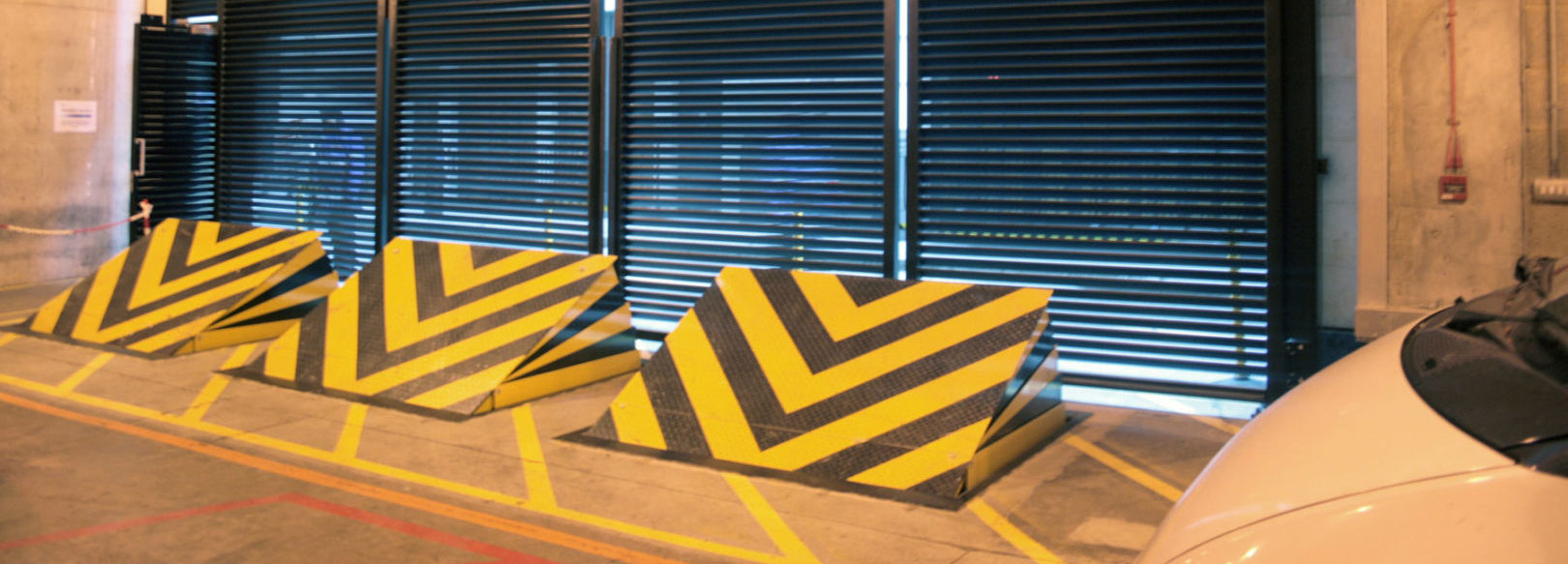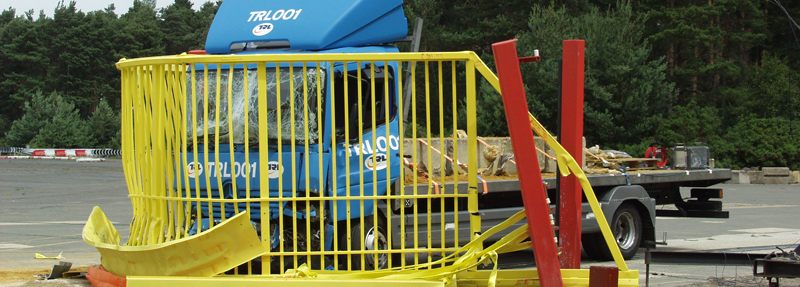Hostile Vehicle Mitigation (HVM)
Hostile Vehicle Mitigation (HVM) refers to the measures and techniques used to prevent or mitigate the damage caused by vehicles that are used as weapons in hostile or criminal acts. It involves the use of physical barriers and other security measures to stop or redirect vehicles that are driven by individuals who are attempting to cause harm.
These measures can include security gates, road blockers, barriers, bollards, and fences that are designed to stop vehicles from entering certain areas or to prevent them from reaching a specific target. Other techniques include the use of surveillance cameras, sensors, and alarms to detect and alert security personnel of potential threats.
Hostile vehicle mitigation is becoming increasingly important in the modern world as vehicle attacks have become more frequent in recent years. HVM measures are commonly used in public spaces such as airports, railway stations, shopping centres, government buildings, and crowded events to protect people and places from harm.
The threat of Hostile Vehicle Attacks
During the past few decades, the threat of terrorist vehicle bombs has increased. This form of attack is more advanced than previous terrorism types as it creates maximum confusion and destruction with minimum warning.
Previously, vehicles were very often parked in close proximity to the intended target and the bomb exploded remotely. Now, with the popularity of the 'suicide bomber', the intent is to breach the perimeter and drive towards the intended target before initiating the explosion. Commercially – hostile vehicle mitigation strategy, planning, product development and installation is the best defence we can employ.
Targeting public areas
Globally, there have been many new cases of using a truck bomb, usually described as a vehicle borne improvised explosive device (VBIED), to target busy public areas such as airports, shopping centres, railways stations, a popular tourist zones and government-linked buildings.
In recent attacks with VBIED’s being used to penetrate a perimeter and then deliver an explosive device or, as in the recent France/Nice incident, the vehicle is used as the primary weapon to attack people and create maximum mayhem.
Our Hostile Vehicle Mitigation Solutions
Several of Cova Security Gates' hostile vehicle mitigation solutions are used globally. Key parts of London’s business district are ring-fenced by Cova PAS rated shallow road blockers. These are an ideal solution for this type of urban environment as presenting the appearance of ‘open for business’ is key. Whilst simultaneously ensuring that the level of protection against a VBIED is critically high.
Protective barriers can be imaginatively incorporated into structures such as benches, planters, landscape architecture, earthworks, walls, lamp columns, shelters and information boards to blend in with the surrounding aesthetics whilst offering security.
Bi-folding and sliding PAS rated crash tested anti-ram gates are used extensively across the UK and internationally in many types of location from Oil refineries to Embassies. These gates are manufactured to our client’s exact specifications and provide both protection against vehicles and persons and, when used in a vehicle ‘air lock’ situation, provide a very secure environment for containing and controlling movement.
Not long ago we introduced Cova Manual Crash Tested Miti-gate CSG 10900 is a low-cost approach to securing areas. Miti-gate protects pedestrians and minimise access to areas such as town centre’s paved areas – permanently or temporarily. The MITI gate is opened and closed at key times manually during events making it ideal for areas that only require occasional access.
Protection with Hostile Vehicle Mitigation (HVM)
Although the use of a vehicle as a tool of terrorism is not new – with the first attempt at destroying The World Trade Centre in 1993, the IRA bombing of Canary Wharf in 1996 and the bombing of two US Embassies in East Africa in 1998. Attacks are becoming more frequent and indiscriminate.
More and more the targets such as busy city centres, governmental buildings and tourist hubs are introducing Hostile Vehicle Mitigation (HVM) techniques in an attempt to foil or minimise the impact of this type of terrorism.
There are a range of measures that can be put in place to counter the threat of an HVA aimed at premises or people, offering various levels of protection. These include Rising Bollards, Static Bollards, MitiGate Manual Gate, Road Blockers, Sliding Gates and Bi-fold gates.
HVM solutions can be deployed as temporary solutions for one-off events or integrated as part of a site of venue structure too.


HVM Safety Standards
Before there were official testing standards in the UK, the US had introduced the DOS scheme – this tested products such as road barriers (road blockers) and rising bollards using a 7.5 ton US truck at various speeds.
Proudly a UK manufacturing business, Cova Security Gates worked in line with these standards and independently tested and verified both its model CSG10503, a full depth road blocker in 2005 and CSG10506, a shallow depth road blocker in 2006.
Moreover, in 2007, the UK government set up the Centre for the Protection of National Infrastructure (CPNI). It’s job is to tackle vehicle terrorism. The CPNI published impact testing and installation guidance documents, in the form of British Standards Institution Publicly Available Specifications (PAS).
The first publication, PAS 69 guides the selection and installation of vehicle security barriers. PAS 68:2007 followed which specifies a classification system for the performance of vehicle security barriers and their supporting foundations when subjected to a single horizontal impact.
Lately, both US’s DOS and the UK’s PAS standards have been superseded. The new US standard being ASTM F 2656. And, conversely, in the UK, we have the revised PAS68:2013 and PAS 69:2013.
In 2013 an ISO standard was also launched – IWA 14-1:2013 Vehicle security barriers – Part 1: Performance requirement, vehicle impact test method and performance rating
Across the range of test standards (PAS, ASTM & IWA) there are minor variations in standards. Tested weight of impact vehicle, type of vehicle and speed of vehicle can vary. Generally speaking the performance standard remains similar.
Cova Security Gates rigorously adhere to all testing standards, globally. With our in-house testing facilities, it is reassuring to know that all our products are of the highest specifications.
Our Complete Range
Vehicle Attacks Timeline:
March
3
2006
North Carolina, Chapel Hill
USA
July
14
2016
Bastille Day, Nice
France
November
28
2016
Ohio State University
USA
December
19
2016
Christmas Market
Berlin
January
20
2017
Melbourne
Australia
March
22
2017
Westminster, London
Australia
April
7
2017
Stockholm
Sweden
June
3
2017
London Bridge, London
United Kingdom
June
19
2017
Finsbury Park
London
August
17
2017
La Rambla, Barcelona
Spain
October
31
2017
Manhattan, New York
USA
December
21
2017
Melbourne
Australia
April
23
2018
Toronto
Canada
August
14
2018
Westminster, London
United Kingdom
January
1
2019
Tokyo
Japan
January
1
2019
Tokyo
Japan
February
14
2019
Pulwama
India
March
22
2022
Beersheba
Israel


























